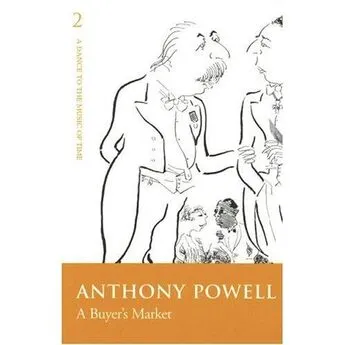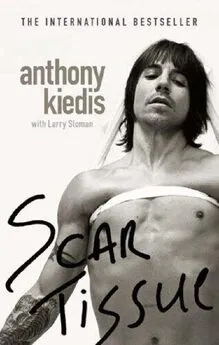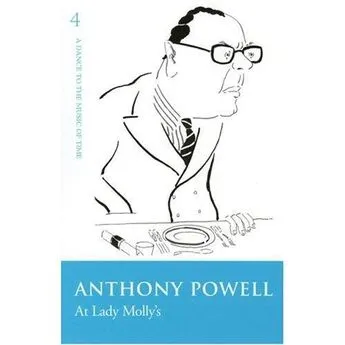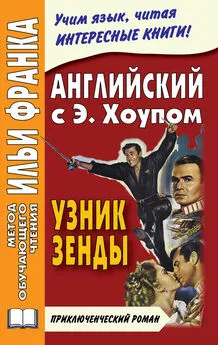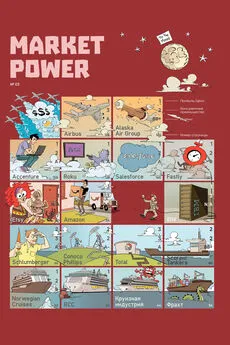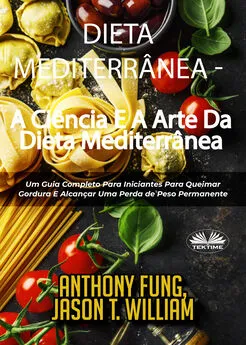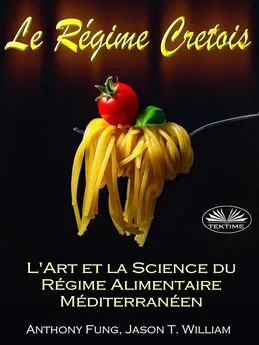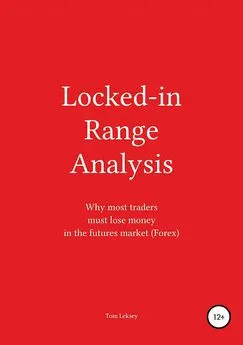Anthony Powell - A Buyers Market
- Название:A Buyers Market
- Автор:
- Жанр:
- Издательство:Arrow
- Год:2005
- ISBN:нет данных
- Рейтинг:
- Избранное:Добавить в избранное
-
Отзывы:
-
Ваша оценка:
Anthony Powell - A Buyers Market краткое содержание
Anthony Powell's universally acclaimed epic A Dance to the Music of Time offers a matchless panorama of twentieth-century London. Now, for the first time in decades, readers in the United States can read the books of Dance as they were originally published-as twelve individual novels-but with a twenty-first-century twist: they're available only as e-books. The second volume, A Buyer's Market (1952), finds young Nick Jenkins struggling to establish himself in London. Amid the fever of the 1920s, he attends formal dinners and wild parties; makes his first tentative forays into the worlds of art, culture, and bohemian life; and suffers his first disappointments in love. Old friends come and go, but the paths they once shared are rapidly diverging: Stringham is settling into a life of debauchery and drink, Templer is plunging into the world of business, and Widmerpool, though still a figure of out-of-place grotesquerie, remains unbowed, confident in his own importance and eventual success. A Buyer's Market is a striking portrait of the pleasures and anxieties of early adulthood, set against a backdrop of London life and culture at one of its most effervescent moments.
A Buyers Market - читать онлайн бесплатно полную версию (весь текст целиком)
Интервал:
Закладка:
I never saw the studio myself, but often heard it spoken of as well stocked with curiosities of one kind or another. We moved from that neighbourhood before the war came in 1914, and, I suppose, lost touch with Mr. Deacon; but for a long time I remember the impression of height he gave when, one day after tea, he presented me with a wooden paint-box — the pigments contained in tubes — the heavy scent of the tobacco he smoked hanging round the pleats and belt of his Norfolk jacket, a garment already beginning to look a little old-fashioned, and the sound of his voice, deep and earnest, while he explained the range of colours to be found within the box, and spoke of the principles of light and shade: principles — I could not help reflecting as I examined the canvases in the sale-room — which his brush must have so often and so violently abused.
By the stage of life when I happened on these four pictures, I had, of course, during our brief latter-day acquaintance, had opportunity to observe Mr. Deacon in surroundings rather different from my parents’ domestic interior, where I had first heard his peculiarities discussed; and I had also, by the time I found myself in the auction-room, talked over his character with persons like Barnby, who knew him at closer range than I myself ever experienced. All the same, I could not help pondering once again the discrepancy that existed between a style of painting that must have been unfashionable, and at best aridly academic, even in his early days; and its contrast with the revolutionary principles that he preached and — in spheres other than aesthetic — to some considerable extent practised. I wondered once again whether this apparent inconsistency of approach, that had once disconcerted me, symbolised antipathetic sides of his nature; or whether his life and work and judgment at some point coalesced with each other, resulting in a standpoint that was really all of a piece — as he himself would have said — that “made a work of art.”
Certainly I could not decide that question there and then in the auction-room among the furniture and linoleum, to the sound of bidding and taps of the hammer, even in the light of later circumstances in which I had known him, and I have never really succeeded in coming to a positive conclusion on the subject. Undoubtedly his painting, in its own direction, represented the farthest extremity of Mr. Deacon’s romanticism, and I suppose it could be argued that upon such debris of classical imagery the foundations of at least certain specific elements of twentieth century art came to be built. At the same time lack of almost all imaginative quality in Mr. Deacon’s painting resulted, finally, in a product that suggested not “romance”—far less “classicism”—as some immensely humdrum pattern of everyday life: the Greek and Roman episodes in which he dealt belonging involuntarily to a world of cosy bar-parlours and “nice cups of tea”—”At least when thought of,” as Barnby used to say, “in terms of pictorial reproduction in, say, photogravure”—even though Barnby himself, in some moods, would attempt a defence at least of certain aspects of Mr. Deacon’s art. In short, the pictures recalled something given away with a Christmas Number, rather than the glories of Sunium’s marbled steep, or that blue Sicilian sea that had provided a back-cloth for the Victorian Hellenism propagated at school by my housemaster, Le Bas. Mr. Deacon’s painting might, indeed, have been compared, though at a greatly inferior level of the imagination’s faculties, with Le Bas’s day-dreams of Hellas; and perhaps, in the last resort, Mr. Deacon, too, would have been wiser to have chosen teaching as a career. Undeniably there was something didactic about his manner, although, as a child, I had naturally never speculated on his idiosyncrasies, of which I knew only by hearing them particularised by my parents or the servants.
This touch of pedantry had been apparent at a later date, when we ran across Mr. Deacon in the Louvre, during summer holidays taken soon after the termination of the war, when my father was still on duty in Paris. That afternoon, although I did not immediately recognise him, I had already wondered who might be the tall, lean, rather bent figure, moving restlessly about at the far end of the gallery; and his name, spoken again after so many years, at once identified him in my mind. When we had come up with him he was inspecting with close attention Perugino’s St. Sebastian, for the better examination of which, stooping slightly, he had just produced a small magnifying-glass with a gold rim. He wore a thickish pepper-and-salt suit — no longer cut with belt and side-pleats — and he carried in his hand a hat, broad-brimmed and furry, the general effect of the whole outfit being, perhaps intentionally, a trifle down-at-heel: together with the additionally disturbing suggestion that his slightly curved torso might be enclosed within some form of imperfectly fitting corset. His grey hair, which needed cutting, was brushed straight back, showing off a profile distinguished rather than otherwise: a little like that of an actor made up to play the part of Prospero, the face heavily lined and grave, without conveying any sense of dejection.
He recognised my parents at once, greeting them with an odd, stilted formality, again like an old-fashioned actor’s. My father — who was not in uniform — began to explain that he was attached to the staff of the Conference. Mr. Deacon, listened with an absorbed expression, failed or, perhaps it would be truer to say, pretended for reasons of his own to misunderstand the nature of this employment. In his resonant, faintly ironical voice, he asked: “And what might you be conferring about?”
At that period Paris was full of missions and delegates, emissaries and plenipotentiaries of one kind and another, brought there by the traffic of the Peace Treaty; and probably my father could not imagine why Mr. Deacon should appear to want further details about his job (which had, I believe something to do with disarmament), a matter which could, after all, at least in its details, be only of professional interest. He certainly did not guess that Mr. Deacon must have decided for the moment to close his eyes to the Conference, together with much — if not all — that had led to its existence; or, at least, preferred, anyway at that juncture, to ignore all its current circumstances. My father’s reply, no doubt intentionally discreet, was therefore worded in general terms; and the explanation, so far as could be seen, took Mr. Deacon no farther in discovering why we were at that hour in the Louvre.
“In connection with those expositions the French love so much?” he suggested. “So you are no longer militaire ?”
“As a matter of fact, they have not given nearly so much trouble as you might expect,” said my father, who must have taken this query to be a whimsical manner of referring to some supposed form of intransigence over negotiation on the part of the French staff-officer constituting his “opposite number.”
“I don’t know much about these things,” Mr. Deacon admitted.
The matter rested there, foundations of conversation changing to the delineation of St. Sebastian: Mr. Deacon suddenly showing an unexpected grasp of military hierarchy — at least of a somewhat obsolete order — by pointing out that the Saint, holding as he did the rank of centurion — and being, therefore, a comparatively senior non-commissioned or warrant officer — probably possessed a less youthful and altogether more rugged appearance than that attributed to him by Perugino: and, indeed, commonly, by most other painters of hagiographical subjects. Going on to speak more generally of the Peruginos to be found throughout the rest of the gallery, Mr. Deacon alleged that more than one was labelled “Raphael.” We did not dispute this assertion. Questioned as to how long he had himself been living in Paris, Mr. Deacon was vague; nor was it clear how he had occupied himself during the war, the course of which he seemed scarcely to have noticed. He implied that he had “settled abroad” more or less permanently; anyway, for a long time.
“There really are moments when one feels one has more in common with the French than with one’s own countrymen,” he said. “Their practical way of looking at things appeals to a certain side of me — though perhaps not the best side. If you want something here, the question is: Have you got the money to pay for it? If the answer is ‘yes,’ all is well; if ‘no,’ you have to go without. Besides, there is a freer atmosphere. That is something that revolutions do. There is really nowhere else in the world like Paris.”
He was living, he told us, “in a little place off the Boul’ Mich’.”
“I’m afraid I can’t possibly ask you there in its present state,” he added. “Moving in always takes an age. And I have so many treasures.”
He shook his head after an inquiry regarding his painting.
“Much more interested in my collections now,” he said. “One of the reasons I am over here is that I have been doing a little buying for friends as well as for myself.”
“But I expect you keep your own work up now and then.”
“After all, why should one go on adding to the detritus in this transitory world?” asked Mr. Deacon, raising his shoulders and smiling. “Still I sometimes take a sketchbook to a café—preferably some little estaminet in one of the working-class quarters. One gets a good head here, and a vigorous pose there. I collect heads — and necks — as you may remember.”
He excused himself politely, though quite definitely, from an invitation to luncheon at the Interallié, a club of which he had, apparently, never heard; though he complained that Paris was more expensive than formerly, expressing at the same time regret at the “Americanisation” of the Latin Quarter.
“I sometimes think of moving up to Montmartre, like an artist of Whistler’s time,” he said.
Conversation waned after this. He asked how long we were staying in France, seeming, if anything, relieved to hear that we should all of us be back in England soon. On parting, there was perhaps a suggestion that the encounter had been, for no obvious reason, a shade uncomfortable; in this respect not necessarily worse than such meetings are apt to turn out between persons possessing little in common who run across each other after a long separation, and have to rely on common interests, by then half-forgotten. This faint sense of tension may also have owed something to Mr. Deacon’s apparent unwillingness to go even so far in comparing autobiographical notes as might have been thought allowably free from the smallest suggestion of an undue display of egotism; especially when conversation was limited chiefly because one side lacked any idea of what the other had been doing for a number of years.
“I was glad to see Deacon again,” my father said afterwards, when, that afternoon, we were on our way to tea at the Walpole-Wilsons’ flat in Passy. “He looked a lot older.”
That must have been almost the last time that I heard either of my parents refer to Mr. Deacon or his affairs.
However, the meeting at the Louvre, among other experiences of going abroad for the first time, remained in my mind as something rather important. Mr. Deacon’s reappearance at that season seemed not only to indicate divorce of maturity from childhood, but also to emphasise the dependence of those two states one upon the other. “Grown-up” in the “old days,” Mr. Deacon was grown-up still: I myself, on the other hand, had changed. There was still distance to travel, but I was on the way to drawing level with Mr. Deacon, as a fellow grown-up, himself no longer a figment of memory from childhood, but visible proof that life had existed in much the same way before I had begun to any serious extent to take part; and would, without doubt, continue to prevail long after he and I had ceased to participate. In addition to this appreciation of his status as a kind of milestone on the winding and dusty road of existence, I found something interesting — though not entirely comfortable — about Mr. Deacon’s personality. He had given me a long, appraising glance when we shook hands, an action in itself, for some reason, rather unexpected, and later he had asked which were my favourite pictures in the gallery, and elsewhere, in the same deep, grave voice with which he had formerly explained his views on tone values: listening to the reply as if the information there contained might possess considerable importance for himself.
Читать дальшеИнтервал:
Закладка:
